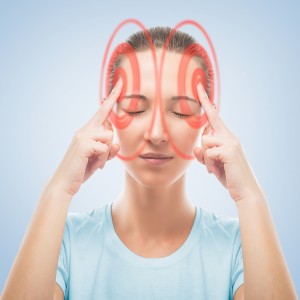 In a previous post, I discussed how chiropractic neurology treats the body according to how the nervous system is performing. Dr. Kurt Hostnik, a board certified chiropractic neurologist, is uniquely trained to diagnose various conditions through a functional neurology exam, and then develop a conservative treatment plan based on what that exam reveals.
In a previous post, I discussed how chiropractic neurology treats the body according to how the nervous system is performing. Dr. Kurt Hostnik, a board certified chiropractic neurologist, is uniquely trained to diagnose various conditions through a functional neurology exam, and then develop a conservative treatment plan based on what that exam reveals.
Vertigo is one of many conditions that can be correctly identified and treated by a chiropractic neurologist.
Vertigo is a feeling of dizziness, imbalance, lightheadedness or a spinning sensation in an otherwise stable environment.
There are two general types of vertigo. Central vertigo involves strokes, tumors, trauma and other conditions in the central nervous system. Peripheral vertigo is more common and primarily originates in the inner ear. Peripheral vertigo can be associated with tumors, trauma, infections, migraines and allergies.
Vertigo is typically a short-term problem, although one issue in the nervous system can lead to other issues. For example, a chronic issue on one side of your brain or body can create problems on the other side of your body or brain.
Think of the nervous system as a trucking route. If the highway is blocked, materials won’t be delivered from headquarters to the end destination. That end destination can start to break down because it isn’t getting the supplies it needs to function properly.
Proper testing, diagnosis and treatment of vertigo require highly specialized training that a board certified chiropractic neurologist like Dr. Hostnik has.
For example, benign paroxysmal positional vertigo (BPPV) typically involves brief episodes of dizziness when you change the position of your head, like tilting your head up or down or sitting up in bed. BPPV occurs when tiny calcium crystals collect in the inner ear.
To diagnose BPPV, a chiropractic neurologist will use the Dix-Hallpike test to maneuver the patient in a very precise way while observing the appearance and timing of eye movements. Successful treatment typically involves the use of the Epley maneuver, a series of motions that can move those calcium crystals out of the ear canal.
However, the cause of dizziness isn’t always vertigo. If the cause is an acoustic neuroma, Dr. Hostnik would get a neurosurgeon involved. If the cause is Meniere’s disease, he would bring in a clinical nutritionist.
I realize we’re starting to get into some clinical terms here, but my point is simple. Chiropractors aren’t just back crackers. This stuff is complicated, and not everything follows the same pattern. We’re trained to help people deal with these conditions.
Chiropractic neurology is another level of that expertise. It requires very specialized training, and board certification is very difficult to attain. There is no one-size-fits-all test, no one-size-fits-all treatment, and no one-size-fits-all doctor for getting rid of everything that ails us, and vertigo is no exception.
If you regularly deal with episodes of dizziness and imbalance, schedule an appointment at Natural Healthcare Center. Let Dr. Hostnik can conduct the proper tests, accurately diagnose the condition, and prescribe a treatment plan that targets the cause of the problem.